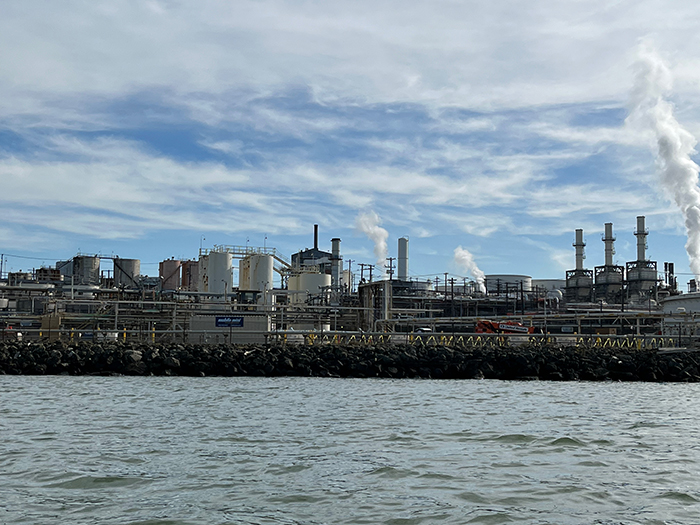Renewable diesel is being promoted around the world as a green solution for fueling diesel trucks. But renewable diesel is not as green or sustainable as its promoters claim. Which is not all that surprising, because its chief promoter is the fossil fuel industry.

Melanie Plaut: In 2016 the city of Portland passed a groundbreaking ordinance banning new fossil fuel infrastructure. But about a year later, a Houston-based oil company called Zenith Energy was able to sneak into town by purchasing a facility, along with its permits, that had previously handled oil and asphalt. They started accepting 100 car-long trains carrying crude oil from Canada and North Dakota, storing it in tanks along the river and then putting it on ships which would travel to Asia or to refineries along the west coast. Now, in order to keep operating Zenith needed to get a permit from the department of environmental quality and in order to get that permit they needed an agreement from the city. Initially, because of pressure from the community and from politicians around the state, the city declined to give this agreement to Zenith. But then in a backroom deal they said that Zenith could keep handling crude as long as they transitioned in five years to renewable diesel. Wait a minute, we said, what is renewable diesel!
Basav Sen: There is no such thing as renewable diesel.

Rich Plevin: The term renewable, just like the term sustainable can be very misleading. People think of it as a signifier of something that’s good for the environment. But in fact it’s just sort of a label that distinguishes it from petroleum diesel. You can be renewable in that you can grow a soy crop every year and make fuel out of it, but it might be the case that you’re emitting more greenhouse gas emissions in that whole process than if you had just used petroleum-based diesel.
Basav Sen: The claim that this is carbon neutral is that plants grow and they pull carbon from the air. Then you burn them and you put that carbon back into the air, but then more plants grow taking their place, pulling more carbon from the air. If you’re burning plant matter you’re releasing a whole lot of carbon into the air right away that will only slowly get absorbed back into plant matter.
Shoshana Wechsler: Huge amounts of fossil gas will be used to refine renewable diesel. So these claims that this renewable diesel is cleaner and greener and has so many benefits. Entities that are absolutely going to benefit are the refiners that get to double down for another 30 to 40 years, while they continue to refine stuff that we burn.
This video shows how a verdant agricultural community along the Columbia Estuary is threatened by a proposed renewable diesel refinery that would be the largest in the world. Speakers include Dan Serres, Advocacy Director for Columbia Riverkeeper; mint farmer Warren Seely; Brandon Schilling, Clatskanie Food Hub.
